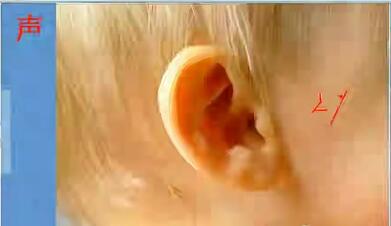精心校订 武汉市第十一中学九年级 2020 年三月测试
发布于 2021-04-02 01:19 ,所属分类:在线教育信息快讯
【点击上方蓝字,我们一起学习】
武汉市第十一中学九年级 2020 年三月测试
二 、单项选择(每小题 1 分,共 15 分)
26. -I failed again in the exam. - .
A. I’m sorry, too. B. Not at all. C. Hard to say D. Don’t worry.
27. -May I help you, young lady? -.
A. Good for you B. Well done C. Yes, please D. Take it easy
28. -Please mind your head, sir. - .
A. It doesn’t matter B. Thanks a lot C. Don’t mention it D. I’m afraid not.
29. She’s brought you some eggs. As you know, she chickens.
A. keeps B. enjoyed C. has kept D. kept
30. I ate fruit, which I always , and the vegetables from my garden.
A. have enjoyed B. enjoyed C. enjoy D. had enjoyed
31. He his English teacher when he was sightseeing in Paris.
A. has met B. had met C. met D. would meet
32. He wrote his phone number a piece of paper.
A. on B. for C. in D. from
33. -Has the design of the city square been decided? -No, it’s still to suggestion.
A. open B. welcome C. ready D. acceptable
34. -He said he wanted to own a big farm.
-Who what he says? He is such a big mouth.
A. knows B. wonders C. remembers D. cares
35. -I really feel stressed out because of the coming exam.
-Cheer up! If the winter comes, spring be far behind?
A. must B. may C. can D. should
36. -Bill promised me a trip to Sanya for vacation.
-Don’t expect too much. His promises for nothing.
A. matter B. count C. mean D. decide
37. -You don’t have to tell me your answer now. Give it some and then let me know. -Well, I will.
A. support B. help C. protection D. thought
38.-With the money we’ve saved, we can buy a new car this year or we can go on holiday.
-It’s a pity that we can’t do .
A. all B. either C. another D. both
39. -Sorry, Nike. I’m afraid I can’t you tomorrow. I will be on business trip.
-It doesn’t matter. I can stay in a hotel.
A. put; up B. put; in C. put; on D. put; down
40. -Honey, what did Jason say to you? -Oh, he asked me .
A. if I knew where his brother has gone B. where his brother had gone
C. when will brother come back D. why his brother doesn’t take him out
三、完形填空(每小题 1 分,共 15 分)
One man was to meet his wife downtown and spend time shopping with her. He waited 41 for 15 minutes. Then he waited impatiently for 15 minutes more. After that, he became 42 . When he saw a photograph booth(照相亭) nearby, he had 43 . He wore the most unhappy expression he could manage, which was not 44 in the situation. In a few moments, he was holding four small prints that 45 even him.
He wrote his wife’s name on the back of the photos and handed them to the clerk behind the desk in the booth. “ 46 you see a small, dark lady with brown eyes and an apologetic expression, obviously looking for someone, would you please give her this?” he said. He then
47 his office in Morrison Building, satisfied that if a picture is worth a thousand words, then the four photos must be a good 48 ! He sat down with a smile.
His wife 49 those pictures. She carries them in her purse now and shows them to anyone who asks if she is married.
How are you with 50 ? One person calls it “waiting training”. It seems that there is always something we are 51 . We wait on traffic and we wait in lines. We wait to her about a new job. We wait to complete school. We wait for someone to change his or her mind. Patience is an important 52 of a happy and rewarding life. 53 , some things are worth waiting for. Every day presents many opportunities for wait training. We can hate
waiting, 54 it or even get good at it! But one thing is 55 -- we cannot avoid it. How is your waiting coming along?
41. A. slowly | B. politely | C. clearly | D. patiently |
42. A. confused | B. annoyed | C. surprised | D. endangered |
43. A. a question | B. a reason | C. an idea | D. an opinion |
44. A. serious | B. relative | C. difficult | D. convenient |
45. A. described | B. shocked | C. afforded | D. encouraged |
46. A. Since | B. Before | C. Unless | D. If |
47. A. called up | B. led to | C. set off | D. returned to |
48. A. dictionary | B. lecture | C. example | D. score |
49. A. saved | B. offered | C. developed | D. designed |
50. A. freedom | B. marriage | C. patience | D. difficulty |
51. A. hoping for | B. ready for | C. waiting for | D. fit for |
52. A. lesson | B. result | C. advantage | D. quality |
53 A. After all | B. For example | C. At last | D. So far |
54. A. improve | B. control | C. exchange | D. accept |
55. A. certain | B. amusing | C. pleasant | D. relaxing |
四、阅读理解(每小题 2 分,共 30 分)
A
As you read the news about novel coronavirus pneumonia, you might feel a bit nervous. But China and other Asian countries have survived similar epidemics ( 流行病) in recent years.
In 2002 and 2003, severe acute respiratory syndrome (SARS, 非典型肺炎) struck 32 countries and regions around the world. China was hit the hardest, with 5,327 cases and 349 deaths on the Chinese mainland. Just like this new epidemic, SARS is caused by a type of coronavirus. Similarly, it causes flu-like symptoms ( 症 状 ), such as coughing and difficult breathing.
About nine years later, Middle East respiratory syndrome (MERS, 中东呼吸综合征) first appeared in Saudi Arabia. It is also caused by a type of coronavirus. Although this disease affected far fewer people than SARS (about 2,500 cases), it killed 858 of them, giving it a death rate of 34 percent, according to NPR. The disease was eventually traced back to camels.
Both of these diseases are caused by viruses, which makes them very difficult to treat.
However, we have learned from these previous outbreaks.
China’s experience in fighting SARS made it able to respond faster to NCP. China has also learned to seek international help and cooperation (合作) while fighting the disease this time.
Li Bin, vice minister of the National Health Commission, told reporters that Beijing is sharing all relevant (相关的) data on NCP with international institutes, including WHO.
“With relatively complete prevention and control systems for sudden and infectious diseases in place since SARS ... and with the support of the broad masses of the public, we are confident of victory,” he said.
BY MIKE FUKSMAN, 21ST CENTURY TEENS STAFF
56. How many countries and regions were affected by SARS from 2002 to 2003?
A. 32 B. 34 C. 349 D. 858
57. From the story, we know that SARS .
A. is also caused by a type of coronavirus
B. is the deadliest virus in the world
C. only affected China in 2003
D. killed around 5,000 people
58. What do we know about MERS?
A. MERS doesn’t affect old people.
B. No people died from MERS.
C. MERS affected more people than SARS.
D. MERS has a higher mortality rate than SARS.
59. What makes SARS and MERS very difficult to treat?
A. They are both respiratory (呼吸的) diseases.
B. They are both spread by animals.
C. They are both caused by viruses.
D. The sick will soon die.
60. To fight against NCP, according to Li Bin, China .
A. is putting more money into medical research
B. is seeking international help and cooperation
C. is developing a vaccine to treat NCP
D. is learning from other countries’ experience
B
According to researchers at Yale University’s Infant Cognition Center, babies can actually tell good from evil, even as young as three months old.
Puppets are used to show good and bad behavior. In one case, a puppet is struggling to open a box. Another puppet, the “good” puppet, helps it open the box, while another, the “bad” puppet, shuts the box on purpose.
More than 80% of the times that the experiment is conducted, babies will select the “good” puppet when presented with both puppets and given the chance to choose either one.
Humans are born with a sense of good and evil, according to Paul Bloom, Yale’s p
































相关资源